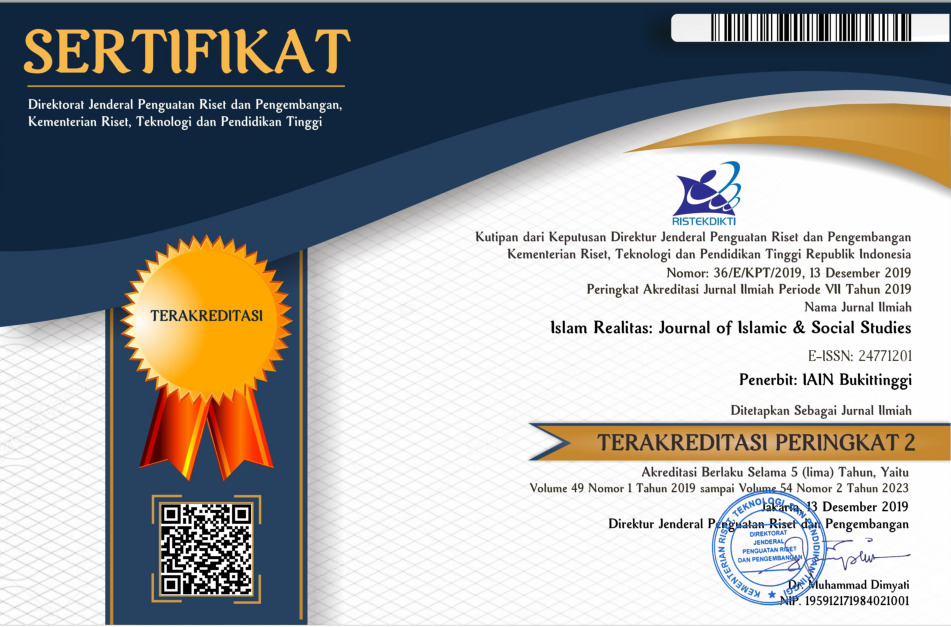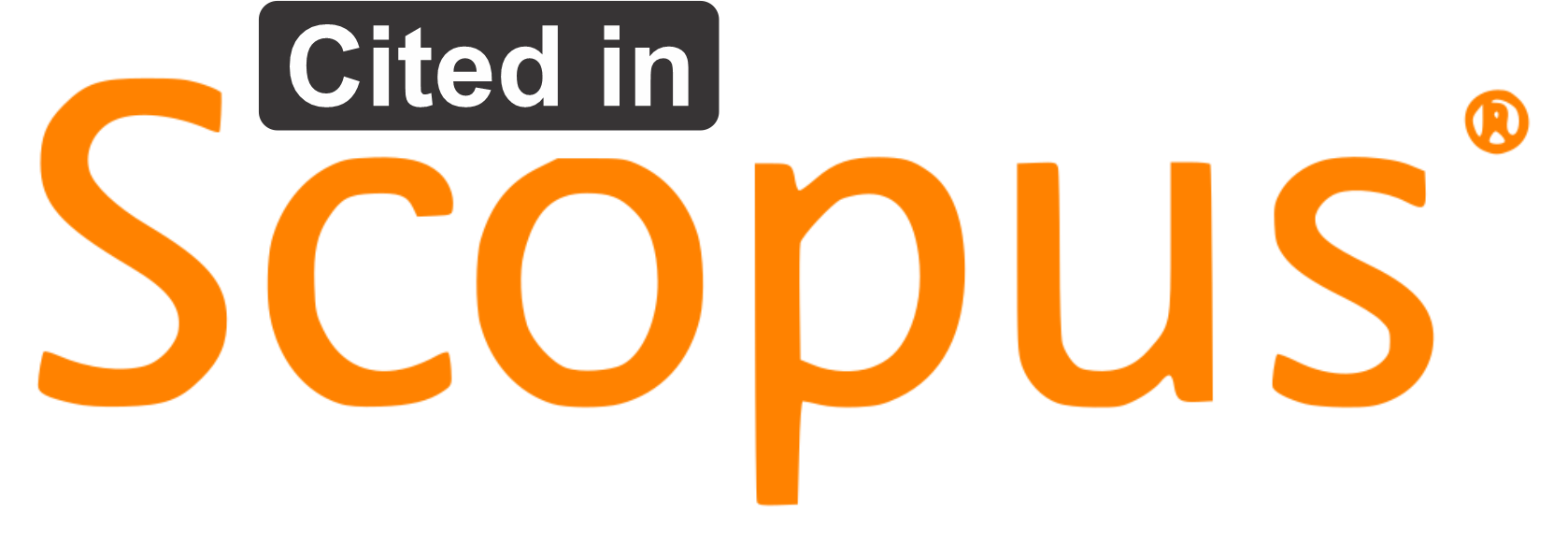Professional Social Workers in the Era of Revolution 4.0 (Case Study in Medan ODH Social Rehabilitation Center)
Downloads
Abstract
This article aims to explain the challenge professional social workers in order to empower the community based on their license. The method used in this study is qualitative method with the study in ODH Social Rehabilitation Center "Bahagia" Medan. This article found that the challenge of professionalism of technology-based social workers is internally related to using digital communication facilities. This can be overcome by training and mentoring and making technological innovations to strengthen social work in community empowerment. This article contributes the necessary knowledge that social workers must be civilized with information technology in today's digital age to support social workers' professionalism by using a dualistic approach in industrial revolution 4.0 towards the Society 5.0 revolution. Regarding the Certificate, it was found that certification is relevant to the professionalism of Social workers in Indonesia, especially social workers in the Center for The Development of Functional Positions of Social Workers and Social Extension, The Ministry of Social Affairs, and the Social Rehabilitation Center ODH "Bahagia" Medan.
Abstrak
Artikel ini bertujuan untuk menjelaskan tantangan pekerja sosial profesional dalam rangka melakukan pemberdayaan masyarakat berdasarkan lisensi yang dimiliki. Metode yang digunakan dalam penelitian ini adalah metode kualitatif dengan studi pada Balai Rehabilitasi Sosial ODH “Bahagia†Medan. Artikel ini menemukan bahwa bentuk tantangan profesionalisme pekerja sosial berbasis teknologi adalah secara internal berkenaan dengan kemampuan pemanfaatan sarana komunikasi digital, ini dapat diatasi dengan pelatihan dan pendampingan serta melakukan inovasi teknologi guna memperkuat kerja sosial dalam rangka pemberdayaan masyarakat. Artikel ini memberi kontribusi pengetahuan penting bahwa ternyata pekerja sosial harus beradabtasi dengan teknologi informasi di era digital saat ini, guna mendukung profesionalisme pekerja sosial dengan menggunakan dualistic approach pada era revolusi industri 4.0 menuju revolusi Society 5.0. Mengenai Sertifikat, ditemukan bahwa terdapat relevansi sertifikasi dengan profesionalisme pekerja Sosial di Indonesia, khususnya pekerja sosial di Pusat Pembinaan Jabatan Fungsional Pekerja Sosial dan Penyuluh Sosial, Kementerian Sosial dan Balai Rehabilitasi Sosial ODH “Bahagia†Medan.
Books
Berita Negara Tahun 2017, ‘12 Tahun 2017 Tentang Standar Kompetensi Pekerja Sosial’, 2018
BRSODH Medan, Dokumen Laporan Tahunan (Medan: BRSODH Press, 2019)
———, Laporan Tahunan (Medan: BRSODH Press, 2020)
Daniel, Bell, The Coming of Post Industrial Society (New York: Basic Books, 1976)
David Berry, Pokok-Pokok Pikiran dalam Sosiologi, ed. by Paulus Wirutomo (Jakarta: Raja Grafindo Persada, 2003)
Elizabeth, Wickenden, Social Welfare in a Changing World (Washington DC: University Press, 1965)
Hitachi, Society 5.0 A People-Centric Super-Smart Society (Japan: Springer, 2018)
J.C Meister, Corporate Universities in Building a World Class Work Force. (New York: McGraw-Hill, Inc, 1998)
Mendenhall W. dan R.J. Beaver, A Curse in Business Statistics, Thirth Edi (New York: PWS Ken Publishing Company., 1992)
Journals
Butler-Warke, Alice; Yuill, Chris; Bolger, Janine, ‘The Changing Face of Social Work: Social Worker Perceptions of a Neoliberalising Profession’, Critical and Radical Social Work, Vol. 8.1 (2020), 59–75
Fajar, Agustus, and Rudi Saprudin Darwis, ‘Tantangan Kiprah Pekerja Sosial Profesional di Indonesia’, Prosiding Penelitian dan Pengabdian Kepada Masyarakat, 4.1 (2017), 29 <https://doi.org/10.24198/jppm.v4i1.14207>
Ferreira, Carlos Miguel, and Sandro Serpa, ‘Society 5.0 and Social Development’, Preprints, 1.November (2018), 1–6 <https://doi.org/10.20944/preprints201811.0108.v1>
Hoggart, Richard, ‘The Uses of Literacy’, The Uses of Literacy, 2017, 1–320 <https://doi.org/10.4324/9781351302043>
Jayaratne, Srinika, Tom Croxton, and Debra Mattison, ‘Social Work Professional Standards: An Exploratory Study’, Social Work, 42.2 (1997), 187–99 <https://doi.org/10.1093/sw/42.2.187>
Jo Moriarty, Mary Baginsky, and Jill Manthorpe, ‘Literature Review of Roles and Issues within the Social Work Profession in England’, King’s Collage London, March, 2015, 35
Melilanny, Irfan, ‘Transformasi Praktik Pekerjaan Sosial Menuju Masyarakat 5.0’, Sosio Informa, 6.02 (2020), 170
Mumtaha, Hani Atun, and Halwa Annisa Khoiri, ‘Analisis Dampak Perkembangan Revolusi Industri 4.0 Dan Society 5.0 Pada Perilaku Masyarakat Ekonomi (E-Commerce)’, Jurnal Pilar Teknologi : Jurnal Ilmiah Ilmu Ilmu Teknik, 4.2 (2019), 55–60 <https://doi.org/10.33319/piltek.v4i2.39>
Nurhanuddin, Nunu, and Hardi Putra Wirman, ‘Social Theology: Re-Actualizing Cultural Values Into Society Transformation’, Islam Realitas: Journal of Islamic & Social Studies, 4.1 (2018), 57 <https://doi.org/10.30983/islam_realitas.v4i1.652>
Pilloni, Virginia, ‘How Data Will Transform Industrial Processes: Crowdsensing, Crowdsourcing and Big Data as Pillars of Industry 4.0’, Future Internet, 10.4 (2018) <https://doi.org/10.3390/fi10030024>
Purwowibowo, ‘Perkembangan Konsep Kesejahteraan Sosial Dan Pekerja Sosial Profesional di Era Global’, Jurnal Ilmu Kesejahteraan Sosial Humanitas, 1.2 (2019), 64–75
Rachmanto, ‘Pekerjaan Sosial Sebagai Suatu Profesi’, Jurnal Informasi Kajian Permasalhan Sosial dan Usaha Kesejahteraan Sosial, Vol 7.No. 2 (2002), 34
Serpa, Sandro, Carlos Miguel Ferreira, Maria José Sá, and Ana Isabel Santos, ‘Digital Society and Social Dynamics’, Digital Society and Social Dynamics, September, 2020 <https://doi.org/10.14738/eb.17.2020>
Soetji, Andari, ‘Peran Pekerja Sosial dalam Pendampingan Sosial The Role of Social Workers in Social Assistance’, Journal of Chemical Information and Modeling, 53.9 (2019), 1689–99
Syamsidar, ‘Dampak Perubahan Sosial Budaya Terhadap Pendidikan’, Al-Irsyad Al-Nafs Jurnal Bimbingan Penyuluhan Islam, 2.1 (2015), 83–92
Tumanggor, Rusmin, ‘Pemberdayaan Kearifan Lokal Memacu Kesetaraan Komunitas Adat Terpencil’, Jurnal Penelitian dan Pengembangan Kesejahteraan Sosial, 12.01 (2007), 1–17
Ware, Caroline F., ‘The Role of the Social Worker in Community Development’, International Social Work, 10.4 (1967), 13–17 <https://doi.org/10.1177/002087286701000402>
Warto, Warto, ‘Budaya Gadget di Pondok Pesantren Mitra IAIN Purwokerto’, IBDA` : Jurnal Kajian Islam dan Budaya, 15.2 (2018), 346–64 <https://doi.org/10.24090/ibda.v15i2.2017.pp346-364>
Others
Paul M. Muchinsky, Inovasi Pendidikan Suatu Analisis terhadap Kebijakan Baru Pendidikan, Psychology Applied to Work: An Introduction to Industrial and Organizational Psychology, Tenth Edition Paul, 2012, LIII <https://doi.org/10.1017/CBO9781107415324.004>
Prasetyo, Banu, and Danumi Trisyanti, ‘Strategi Pembangunan Nasional Menghadapi Revolusi Industri 4.0’, in Revolusi Industri 4.0 dan Tantangan Perubahan Sosial, 2019, IV, 22–27
Santoso, Meilanny Budiarti, Dessy Hasanah Siti Asiah, and Moch Zainuddin, ‘Tantangan Praktik Pekerjaan Sosial Seiring Perubahan Interaksi Sosial di Tengah Masyarakat Modern’, Prosiding Penelitian dan Pengabdian Kepada Masyarakat, 5.3 (2019), 272 <https://doi.org/10.24198/jppm.v5i3.20221>
Suharto, Edi, ‘Peran Pekerja Sosial dalam Penanganan Masalah Sosial Global’ (Jakarta: Disampaikan pada Seminar “Isu-Isu Global dan Masalah Sosial Strategis yang Berpengaruh terhadap Pembangunan Kesejahteraan Sosial Departemen Sosial RI, 2004)
Zaidaha, Nuning, M. Jazuli, Darsono, and Sunarto, ‘Pembelajaran Seni Multikultural Menghadapi Konstruksi Masyarakat 5.0 Pada Era Vuca’, Seminar Nasional Pascasarjana 2019, 2019
Authors who publish with this journal agree to the following terms:
- Authors retain copyright and grant the journal right of first publication with the work simultaneously licensed under a Creative Commons Attribution License that allows others to share the work with an acknowledgment of the work's authorship and initial publication in this journal.
- Authors are able to enter into separate, additional contractual arrangements for the non-exclusive distribution of the journal's published version of the work (e.g., post it to an institutional repository or publish it in a book), with an acknowledgment of its initial publication in this journal.
- Authors are permitted and encouraged to post their work online (e.g., in institutional repositories or on their website) prior to and during the submission process, as it can lead to productive exchanges, as well as earlier and greater citation of published work (See The Effect of Open Access).









